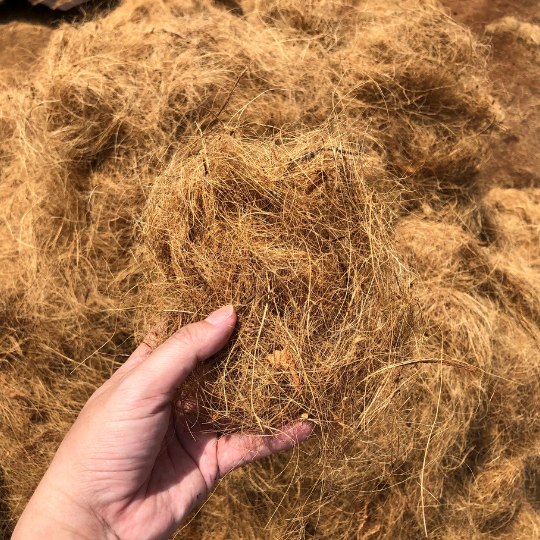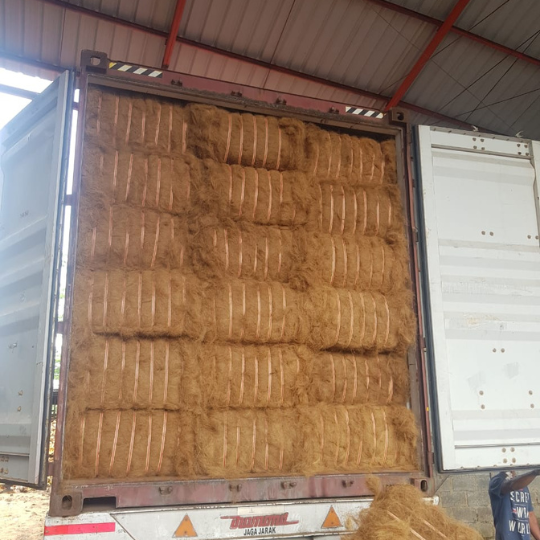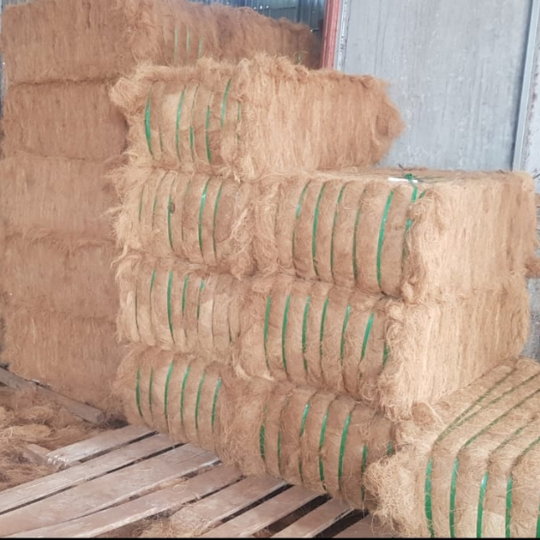
Coconut fibre for plants, also known as coir, has become increasingly popular among gardening enthusiasts for its remarkable benefits in plant care. Derived from coconut husks, this natural fiber offers a sustainable and eco-friendly alternative to traditional soil amendments. Its popularity stems from several key advantages that cater to the needs of various types of plants. From excellent water retention to promoting superior aeration around roots, coconut fibre ensures optimal growing conditions. Moreover, its natural resistance to pests and pathogens reduces the reliance on chemical treatments, making it safer for both plants and the environment. As a biodegradable material, coconut fibre enriches soil health over time, supporting sustainable gardening practices. Whether you’re nurturing delicate indoor plants or maintaining a thriving garden, coconut fibre proves to be a versatile and beneficial choice for enhancing plant growth and longevity.
Here are 5 compelling reasons why Coconut fibre for plants should be your go-to option:
1. Sustainable Sourcing
Coconut fibre for plants is sustainably sourced from discarded coconut husks, repurposing waste from coconut production. This eco-friendly practice supports sustainability by reducing landfill waste and promoting the use of natural materials in gardening. By choosing coconut fibre, gardeners contribute to environmental conservation efforts while benefiting from its excellent properties for plant growth and soil health.

2. Excellent Water Retention
Coconut fibre for plants boasts excellent water retention capabilities, surpassing traditional soil. This quality ensures plants remain adequately hydrated for extended periods, ideal for species that thrive on consistent moisture levels. By retaining moisture effectively, coconut fibre supports healthy root development and reduces the frequency of watering, making it a practical choice for both indoor and outdoor gardening. Gardeners benefit from improved plant resilience and reduced water consumption, aligning with sustainable gardening practices.
3. Enhanced Aeration
Coconut fibre for plants enhances aeration around plant roots, promoting optimal air circulation and nutrient absorption. Unlike compacted soil, coconut fibre maintains a loose structure that prevents root suffocation and encourages robust root growth. This improved aeration also reduces the risk of waterlogging and root diseases, contributing to overall plant health and vitality. By choosing coconut fibre, gardeners ensure that their plants receive sufficient oxygen and nutrients, essential for thriving in various environments from pots to garden beds. This natural benefit makes coconut fibre an excellent choice for supporting healthy plant growth and maximizing gardening success.
4. Naturally Pest-Resistant
Coconut fibre for plants is naturally pest-resistant, thanks to its inherent properties that deter pests and pathogens. This natural resilience reduces the need for chemical pesticides, making it a safer choice for plants and the environment. By using coconut fibre in gardening, you create a protective barrier around your plants, minimizing the risk of pest infestations and maintaining a healthier growing environment without harmful chemicals.

5. Biodegradable and Renewable
Coconut fibre for plants is biodegradable and renewable, making it an environmentally-friendly choice for gardening. As it breaks down naturally over time, coconut fibre enriches the soil with organic matter, supporting long-term soil health. This renewable characteristic ensures sustainability in gardening practices, allowing for continuous use without depleting natural resources. By opting for biodegradable coconut fibre, gardeners contribute to a greener ecosystem while enjoying its benefits for plant growth and overall soil fertility.
Coconut fibre for plants stands out as a perfect choice for nurturing plants due to its multitude of benefits. Its sustainable sourcing from coconut husks not only reduces waste but also supports eco-friendly gardening practices. The exceptional water retention properties of coconut fibre ensure plants receive consistent hydration, which is crucial for their health and growth. Additionally, its ability to promote superior aeration around roots minimizes the risk of root diseases and enhances overall plant vitality. Coconut fibre’s natural resistance to pests and pathogens further contributes to plant health by reducing the need for chemical treatments. As a biodegradable material, it enriches the soil with organic matter over time, fostering long-term soil fertility. Whether you’re cultivating indoor plants, maintaining a garden, or growing crops, integrating coconut fibre into your gardening routine provides sustainable solutions that benefit both plants and the environment alike.
In conclusion, if you are eager to delve deeper into the details of coir products, feel free to explore our website at https://cocopeatcocofiberaustralia.com/. Additionally, for direct and instant connection with our team, you can reach us through the following WhatsApp link https://wa.me/61412773364. We look forward to providing you with the information and assistance you need.
